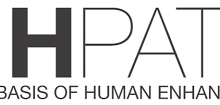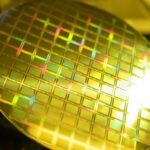Share this post:

Lyon, France, January 21, 2020 – Advanced BioDesign, a French pre-clinical stage biotechnology company focused on the development of a new treatment against resistant cancers, today announces it has teamed up with 27 European academic and industrial organizations from 11 countries to form the multidisciplinary science consortium, ENHPATHY.
“ENHPATHY is expected to improve the genetic knowledge around enhanceropathies, such as cancer, inflammatory diseases, obesity, diabetes and developmental disorders, in order to improve diagnosis, therapy, genetic counselling and prevention in patients,” said Salvatore Spicuglia, director of research at TAGC (INSERM – Aix-Marseille University) and coordinator of ENHPATHY.
In genetics, enhancers are a short region of DNA that can be bound by proteins to increase the likelihood that transcription of a particular gene will occur. Just as mutations within coding genes have traditionally been considered the major genetic cause of human disease, it is becoming increasingly clear that the genetic, structural and/or epigenetic disruption of enhancers and enhancer landscapes represent major etiological factors in numerous human diseases. These pathologies linked to enhancers (enhanceropathies) can be the cause of a wide variety of diseases such as rare hereditary diseases, cancer or diabetes. Although their pathological and therapeutic repercussions are known, the molecular mechanisms of regulation of our genes by enhancers have little description, limiting their exploitation in treating diseases.
“EU-funded projects such as ENHPATHY are highly competitive; the selection rate for EU financing is around eight per cent. This remarkably low rate is the most cogent proof of the scientific excellence and the expected impact of the ENHPATHY project,” said Mileidys Perez, CSO, Advanced Biodesign and project manager in the ENHPATHY consortium for Advanced BioDesign. “One of the characteristics of the project is the hiring of early stage researchers by Advanced BioDesign and the other project partners, leaders in molecular biology, computational biology and human genetics. These early researchers are expected to move from one partner to another during this time which will improve the transfer of experience.”
“ENHPATHY represents a great opportunity for Advanced BioDesign to work in close collaboration with European leaders to improve the scientific knowledge around clinical actionable genetic alterations in patients with cancer, particularly acute myeloid leukemia,” said Ismail Ceylan, CEO, Advanced BioDesign. “Improving understanding of the regulation mechanisms of our therapeutic target will allow us to adapt our future clinical trials with personalized treatment, thus improving the likelihood of success and facilitating the translation of findings from bench to market.”
The ENHPATHY research program is due to start on March 1, 2020. It will receive a budget of €4M ($4.4M) to support innovative training programs and cooperation between its academic and industry partners.
About ENHPATHY
ENHPATHY is a multidisciplinary science consortium created within the frame of the Marie Sk?odowska-Curie (MSCA)-ITN-ETN European Training Networks. It gathers 15 academic and 12 non-academic European organisations in the continuum of basic, translational and clinical research on enhancers and associated diseases. ENHPATHY aims to increase scientific knowledge and train new generations of researchers on human enhanceropathies to open new diagnostic and therapeutic avenues for patients.
Grant Agreement number: 860002
https://twitter.com/enhpathy_H2020
About Advanced BioDesign
Advanced BioDesign is a French biotechnology company developing an innovative targeted therapy to treat resistant cancers, with a first indication in acute myeloid leukemia.
Its main anti-cancer compound, ABD-3001, is a first-in-class suicide inhibitor of aldehyde dehydrogenases 1 & 3 (ALDH1 & 3). The ALDH enzyme allows cancer cells to detoxify themselves by recycling molecules that can harm them. By inhibiting this enzyme, ABD-3001 causes apoptosis of the cancer cells without damaging healthy cells.
ABD-3001 is currently in the preclinical stage. Advanced BioDesign plans to submit its regulatory file to the French National Agency for Medicines and Health Products Safety (ANSM) in 2020. The company is actively preparing to enter clinical phase 1/2a in 2021.
Founded in 2010 and based in Saint-Priest, near Lyon (France), Advanced BioDesign collaborates with Prof. Régis Costello at the AP-HM (Marseille, France), which is also a base for some of its employees.






